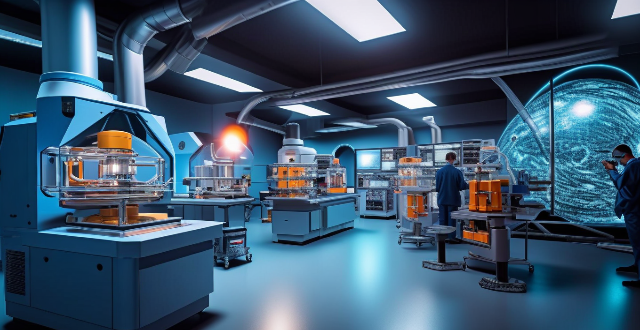Space exploration has been a crucial tool in expanding our knowledge about the universe. It has allowed scientists to observe and study phenomena that are impossible or difficult to replicate on Earth. In this article, we have discussed how space exploration contributes to our understanding of the universe through observation of cosmic phenomena, study of the solar system, testing scientific theories, and development of new technologies. By continuing to explore space, we will undoubtedly gain even more knowledge about the vastness and complexity of the universe.

Space Exploration's Contribution to Our Understanding of the Universe
Introduction
Space exploration has been a crucial tool in expanding our knowledge about the universe. It has allowed scientists to observe and study phenomena that are impossible or difficult to replicate on Earth. In this article, we will discuss how space exploration contributes to our understanding of the universe.
Observation of Cosmic Phenomena
One of the most significant contributions of space exploration is the observation of cosmic phenomena. By sending spacecraft and telescopes into space, scientists can study celestial objects such as stars, planets, galaxies, and black holes without the interference of Earth's atmosphere. This has led to many discoveries, including:
- The detection of exoplanets (planets outside our solar system)
- The observation of supernovae (exploding stars) and their remnants
- The discovery of dark matter and dark energy, which make up most of the universe's mass and energy
Study of the Solar System
Another important contribution of space exploration is the study of our own solar system. By sending spacecraft to other planets and moons, scientists have gained valuable information about their composition, geology, atmosphere, and potential for life. Some examples include:
- The discovery of water on Mars and Europa (one of Jupiter's moons)
- The identification of geological activity on Venus and Io (one of Jupiter's moons)
- The revelation that Pluto is not a true planet but rather a dwarf planet with an icy surface and thin atmosphere
Testing Scientific Theories
Space exploration also allows scientists to test various scientific theories in extreme conditions that cannot be replicated on Earth. For example:
- General relativity predicts that time moves slower near massive objects like black holes. This was confirmed by observing the effects of gravity on light from distant quasars as they passed close to a galaxy containing a supermassive black hole.
- The Big Bang theory suggests that the early universe was extremely hot and dense. Observations of the cosmic microwave background radiation, which is the afterglow of the Big Bang, support this theory.
Development of Technology
Space exploration has also led to the development of new technologies that have applications beyond space research. Some examples include:
- Satellite communications, which allow us to communicate globally in real-time
- GPS technology, which relies on a network of satellites orbiting Earth to provide precise location data
- Improvements in materials science, such as lightweight composite materials used in spacecraft construction, which have found uses in everyday products like sports equipment and cars
Conclusion
In conclusion, space exploration has greatly contributed to our understanding of the universe by allowing us to observe cosmic phenomena, study our own solar system, test scientific theories, and develop new technologies. As we continue to explore space, we will undoubtedly gain even more knowledge about the vastness and complexity of the universe.